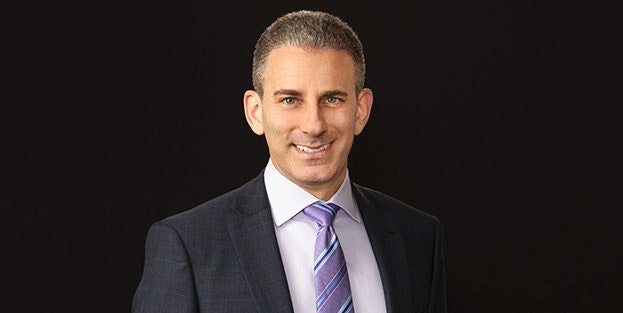Startups often begin sketched out on the back of a napkin, and can lead a scrappy early existence with little time to worry about any but the most essential legal requirements. Come time to raise money or sign a big commercial contract, however, these legal loose ends lead to big headaches.
Sifted asked leading startup lawyers about the most common problems they see and asked them: “What is the one legal issue a startup founder should consider early?”

1) Document your shareholding structure early on to avoid a nasty tax surprise
Orrick, which recently advised Revolut, Graphcore and Worldremit on their fundraisings, says share register problems are a common problem when it comes to preparing for a funding round.
“You’d be surprised at how many founders fail to come to an upfront agreement over who owns what,” says partner Christopher Grew. “Companies are often founded in stages, it may not be incorporated on day one, founders may join the project at different times, so it is quite normal not to sit down and agree allocations straight away.”
But, says Grew, founders do need to agree and document these as soon as they can — or they could face a nasty tax penalty further down the line.
In the early days of founding the company it is easy to issue and reallocate “founder shares” among the original set of entrepreneurs. These have nominal value and there are few tax implications. When a VC investor comes in, however, suddenly the company — and the shares — have a value, and they are no longer free to move around.
“The founders may have all agreed to share the equity equally, but in some cases they may not have documented that, and all of the shares are still in the name of just one founder. Transferring them in to the others at that stage is expensive because there would be tax to pay on the transaction,” says Grew.
Another problem he sees frequently is founders over-promising shares in the company to friends, family and employees in the early days, without stopping to calculate how much it all adds up to.
You have to make sure the percentages don’t add up to more than 100%
“Perhaps you hire a big sales person and promise them 5% of the company because you can’t pay a very high salary. You have to be clear how that affects everyone else’s holding and you can’t keep doing that for everyone. You have to make sure those percentages don’t add up to more than 100%.”
As basic as this may sound, Grew says around a third of the startups he advises on funding rounds have some kind of shareholding problem, and this can have a big impact on the deal.
“I have seen cases where investment in a company has had to be delayed because this kind of situation was being sorted out.”

2) Almost everything is IP and yes, you need to secure it. All of it.
“There are two things that come back to bite you if you don’t deal with them properly: people and intellectual property,” says Merlie Calvert, founder of legal platform Farillio, which provides advice — often in the form of videos and how-to guides — mainly to small and micro-businesses.
“Cofounders are often not clear up front about who does what. One person might put in more money, another more time, but if this is not clearly fleshed out it becomes a problem,” Calvert says.
A simple cofounder agreement can solve the problem. “It doesn’t have to be set in stone, you don’t need a lawyer to draw it up. Simply write down what the business is that you are creating, who owns what, and sign it.”
When a dispute arises, the agreement is something all parties can go back to to help clarify the situation.
The first thing an investor will ask is about IP. If this isn’t protected they will lose confidence.
Calvert also advises startups to think about their IP from the minute they start — and to consider virtually everything IP. “Even your sketch of an idea is intellectual property” and needs to be secured, she says.
“The first thing an investor or a corporate doing a deal with you will ask is about IP. If this isn’t protected they will lose confidence in the company,” she says.
Some types of IP are relatively easy to secure. Patent filings are complex and costly and will almost certainly need to be done by a professional. However, protecting copyright is simple and needs no lawyers — just scan or clip a copy of the text or images that you want to protect and email them to yourself. The date stamp on the email will work as proof of your ownership.
Trademark registration is also something you can do yourself, although it may be worth asking an expert to advise on whether registrations would hold up other countries. Securing design rights, which protect aesthetic features such as the shape of a Coca-cola bottle, may require some expert advice but this should not cost thousands of pounds, Calvert says.

3) Make sure you have a robust board that can solve disputes
“One thing that startups sometimes should pay more attention to in the early days is board governance. When you have three or four young cofounders, they don’t always have the experience needed to successfully navigate more serious events or disruption,” says Mathias Loertscher, partner at Osborne Clarke.
When a company gets into trouble — such as a shareholder dispute, having to deal with an exiting cofounder or even the threat of insolvency — having a robust board becomes really crucial. “Having an independent, experienced and engaged chairperson can be really helpful at that point in aligning the different interests,” says Loertscher.
Loertscher does a lot of work with startups that are raising money. Osborne Clarke, for example, recently advised N26 on its $300m Series-D round and InReach Ventures on its $53m fund.
The vast majority of VC deals don’t involve 'liquidation preference' clauses, but some funds might push for it when investing in riskier companies.
Funding rounds are often the point, he says, when companies are forced to spend time fixing legal issues that have, up to then, been addressed loosely or informally. Investors will insist on formalising arrangements such as ownership of IP as a condition of their investment.
Loertscher adds that when negotiating rounds startups need to stay alert to funds pushing for aggressive terms such as a so-called “liquidation preference” clauses, which allow the investor to recover a multiple of their original investment amount in the event of an exit before any of the other shareholders receive any consideration. Often, they can then participate in the next funding round alongside the other shareholders.
“The vast majority of VC deals don’t involve this kind of arrangement, but some funds might push for it when investing in riskier companies,” he says. Terms like these can end up tipping the balance of power in favour of investors and it is worth considering carefully before accepting, he says.

4) Don’t give investors rights that allow them to hold you hostage
The key issue for a startup is to look very carefully at what consent or veto rights you give to investors, says Robbie McLaren, partner at Latham & Watkins. Think very carefully before you restrict your ability to raise new money.
It is a tale of woe I hear once a month, companies find themselves unable to raise new funding because the shareholders will not agree.
“It is a tale of woe I hear from companies probably once a month, they find themselves unable to raise new funding because one of the shareholders will not agree,” McLaren says.
“A professional VC will not usually do this, but if your investor is your mum’s second cousin’s best mate — you might have to look very carefully at the terms.”
Once you are in a situation where a shareholder is refusing to give consent, the options are all pretty unpalatable, says McLaren. You can offer the shareholder money to persuade them to agree, or you might be able to get them out of the contract — but this is complicated and expensive. The only other option — if no agreement can be reached — is to wind up the company or walk away. Not a great result.

5) Structure the company to make decisions faster
Ryan Naftulin, partner at Cooley, has a theory: that the corporate structures of UK companies can slow-down the critical decision-making process, when compared to their US counterparts. A particular challenge, he says, is the fact that English law and common practice require a minimum of the holders of 75% of the shares of a company – and sometimes more – to agree on key decisions such as fundraising and exits.
I have seen deals blow up because the company cannot achieve sufficient consensus.

“In the US it is typically a simple majority or some other more achievable threshold. In the UK, the 75% voting threshold can be hard to achieve – particularly for companies with large cap tables – and I have seen deals get delayed and even blow up because the company cannot achieve sufficient consensus,” says Naftulin.
Although the 75% voting threshold is part of English company law, there are mechanisms that companies can use to ensure they don’t end up in a stalemate because of a small number of recalcitrant shareholders.
For example, they could put in place a contractual agreement that if some lesser threshold vote a certain way, the rest must support the decision.
Another common theme that Naftulin's Cooley colleague Aaron Archer says he sees with early stage startups is the lack of attention given to the needs of the company versus the needs of the founders as individuals. Such things, for example, as making sure the intellectual property belongs to the company rather than any individual; dealing with what happens when one or more of the founders leaves; and what happens to a departing founder’s shares, board seat and voting rights.
“Founders should give serious consideration to these issues very early on and would do well to try to understand the value in prioritising the success of the company over the protection of their individual entitlements as founders,” he says.
6) Launching in the US? Be prepared for the cost.
Wilson Sonsini Goodrich & Rosati is the law firm famous for incorporating and subsequently taking public Google, and WSGR’s London office specialises in helping European startups launch, scale and exit in the US.
The most common mistake for startups, says partner Daniel Glazer, is heading to the US without really thinking through if it makes sense strategically. Startups are attracted by the size of the US market, but not everyone’s product or service is necessarily going to work there, Glazer says.
Too many companies go [to the US] without understanding the cost of competing in the market.

“Too many companies go without determining whether there is product-market fit, and without understanding the cost of competing in the US market. Everything is just a bit bigger in the US — the costs of running a business, the funding rounds, the exits. Some companies are not comfortable spending that amount of money and find themselves overtaken by more aggressive US competitors,” says Glazer.
“We often pressure test the go-to-market plan of the companies that come to us,” Glazer says. “The first thing we ask is what they mean by ‘going to the US’. Are they simply selling to US clients? Setting up a full office? Buying a US company? Raising money from US investors? All those are very different things.”
You’d be right in thinking this sounds more like strategic than legal advice. Glazer’s other tip for US-bound startups is this: expect a completely different relationship with your lawyer.
“Lawyers that work with tech companies in the US also act as strategic advisers. It is very different to the UK, where legal advice is taken on more of a problem-solving basis. The risk of litigation is much higher in the US, so you have to proactively work with your lawyer on strategies to achieve your business objectives while managing risk,” Glazer says.
Yes, this probably means your legal costs will be higher than in Europe. US companies in general spend over 166% more on legal costs than their global counterparts, according to a 2017 study. A US entity can be set up fairly inexpensively, Glazer says, but costs begin to ramp up as companies look to enter into commercial contracts with US customers, who typically negotiate more aggressively on contract terms than non-US companies.



